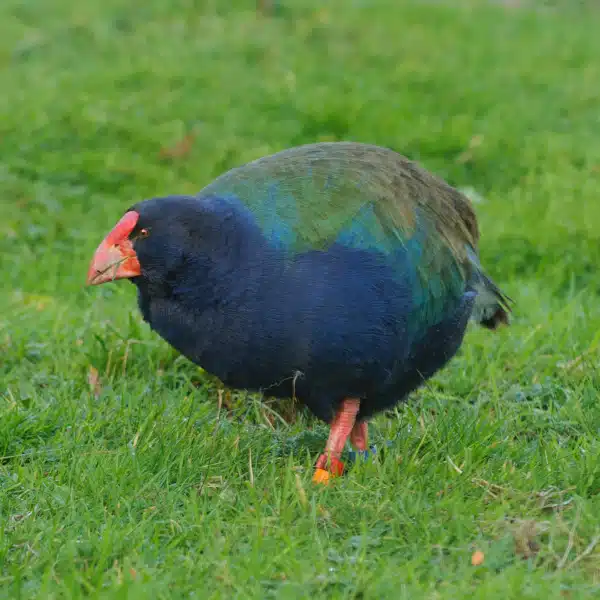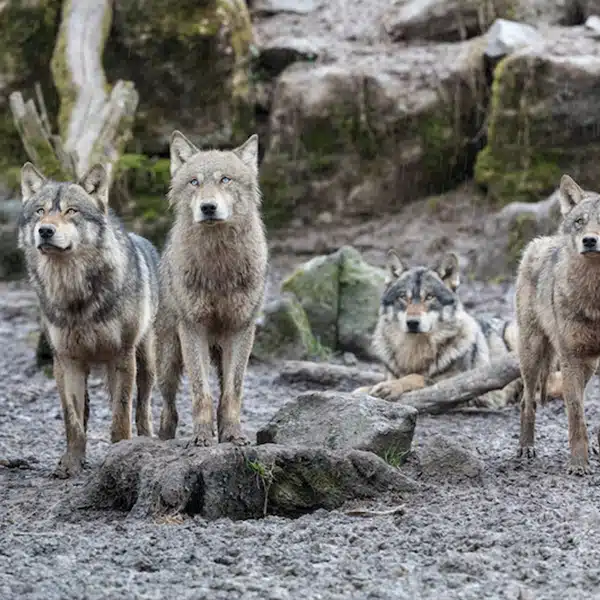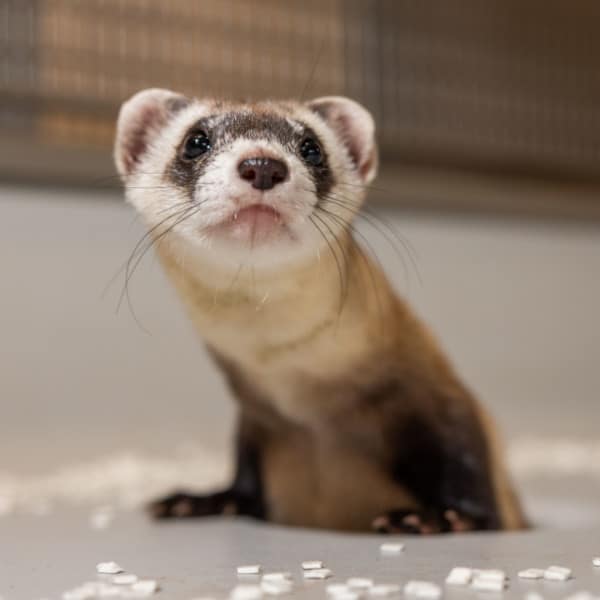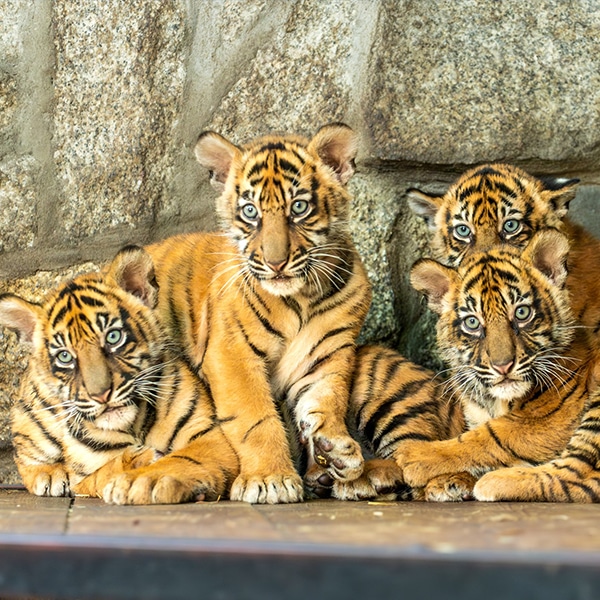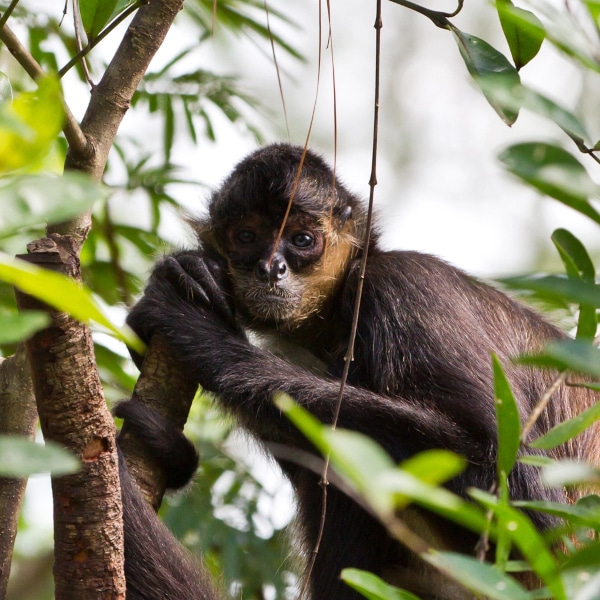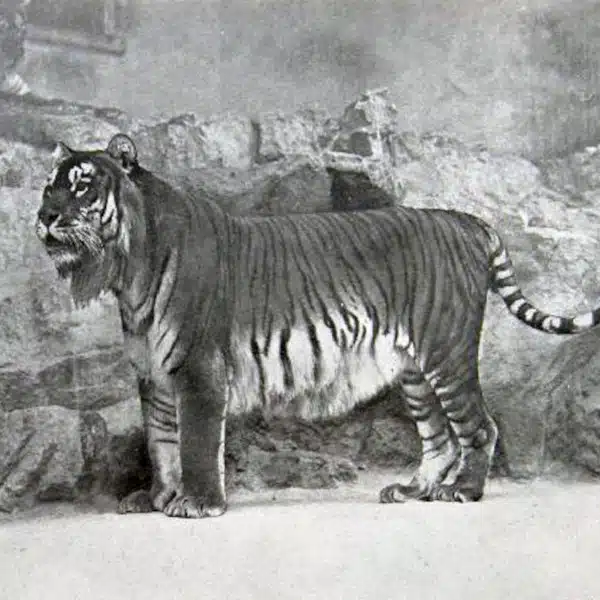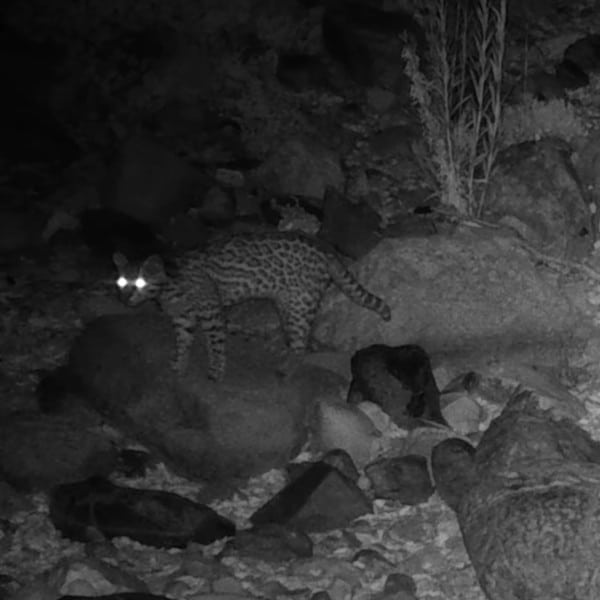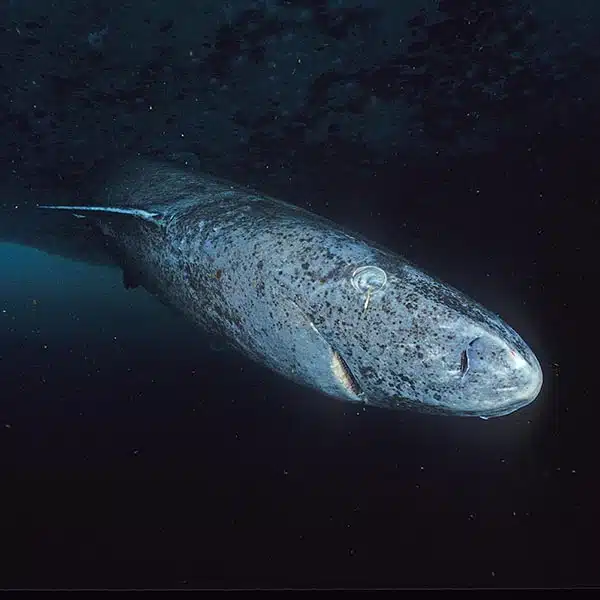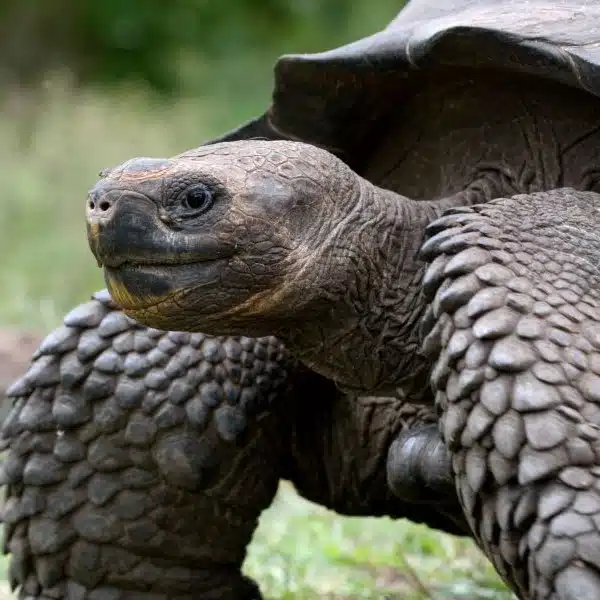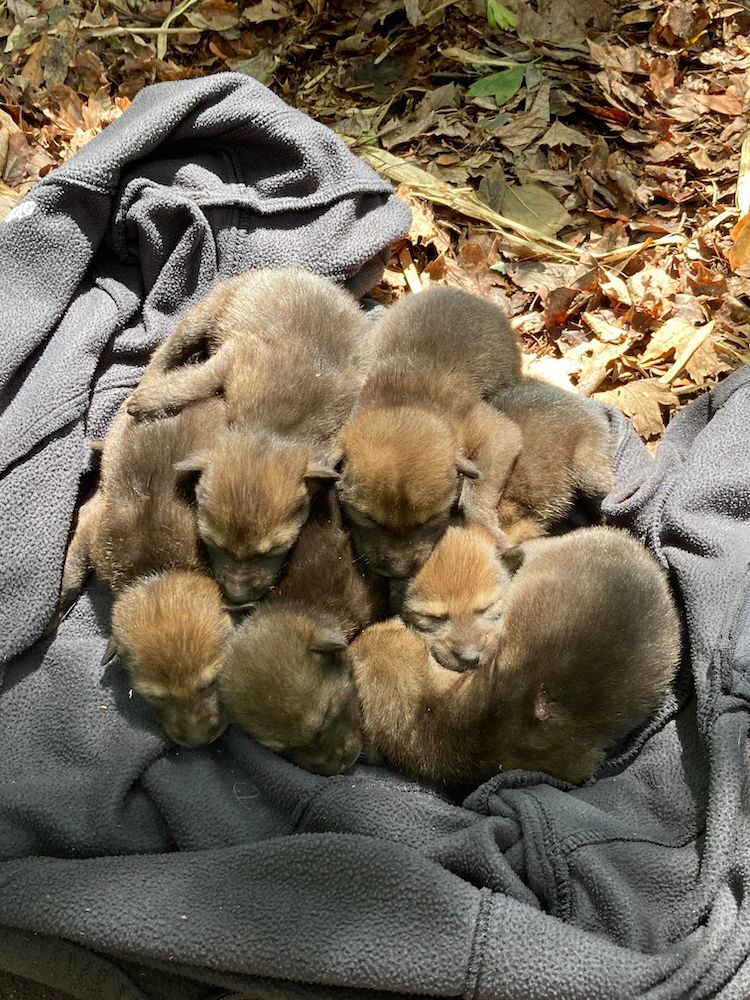
Native to the southeastern United States, the red wolf has been an endangered species since 1967. Since the 1970s, the U.S. Fish and Wildlife Service has been running a captive breeding program and there is now actually a wild population in North Carolina. However, for the past four years, these wolves haven't had any pups. That all changed this year. A joyous Facebook post by the Red World Recovery Program announced the birth of six wild red wolf pups.
The four females and two males born in April give new hope to this wild population, which was once estimated at up to 120 wolves in 2012 but has dwindled to just around 20 in 2021. The photographs posted show the pups piled together as staff members gently checked them over to assess their general health and microchip them so that they can be followed in the future. According to the post, mom was close by when they arrived and moved aside to let them inspect the den. The father was out hunting, with the visit timed specifically for that moment.
Historically, red wolves populated a large part of the United States, reaching southern New York and stretching all the way down to the Gulf of Mexico. Unfortunately, they were nearly extinct by the mid-1900s due to habitat destruction, strict predator-control habits, and interbreeding with coyotes. By 1973 when the Endangered Species Act was passed, there were only 17 red wolves in the wild. Fourteen of these wolves were used to start a captive breeding program. By 1980, the red wolf was officially declared extinct in the wild.
However, the captive breeding program had success and, in 1987, an area within North Carolina's Alligator River National Wildlife Refuge was designated as a space to release some of the captive population back into the wild. While the captive population stood at 241 as of 2021, the wild population has suffered losses. With many wolves killed either by vehicles or private landowners when they wander too far afield, breeding is essential to keep the population up. So, after four years without new pups, these six additions bring hope for a new generation in the wild.
Red wolves are native to the southeastern United States and have been endangered since 1967.
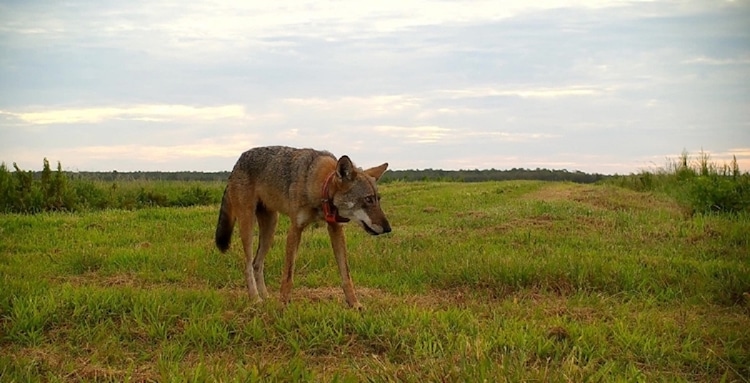
Adult red wolf
Since the 1970s, a captive breeding program has kept up the population.
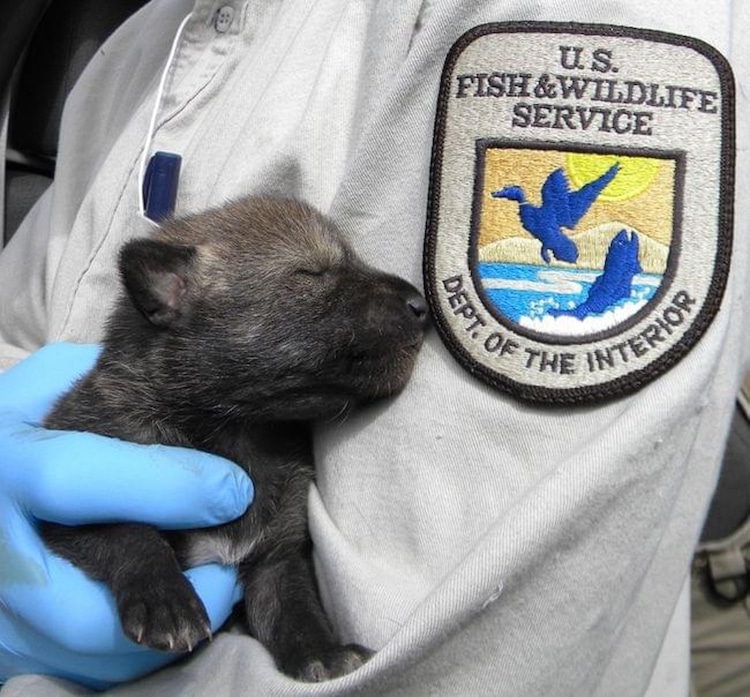
Captive-born red wolf pup
There is also a small wild population, and recently six red wolf pups were born. This is the first wild litter in four years.
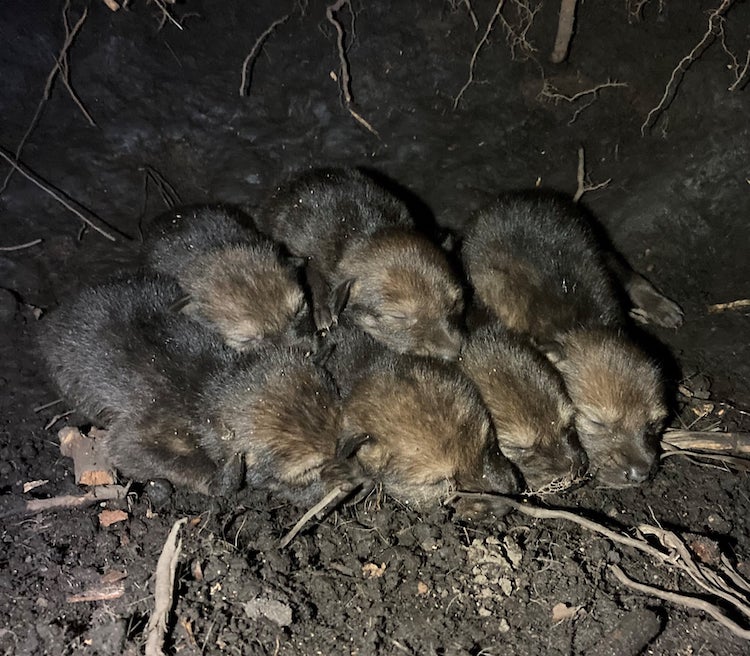
Wild red wolf pups in their den
USFWS staffers quickly check on the pups' health and microchip them for safety before returning them to their mother.
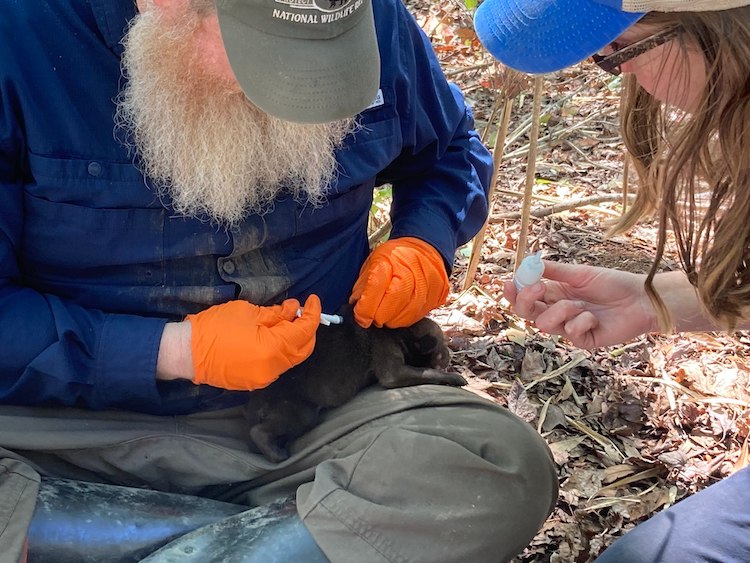
USFWS microchipping wild-born red wolf pup
h/t: [NPR]
All images via USFWS.
Related Articles:
Tragic Portraits of America’s Endangered Species
Critically Endangered Big-Headed Turtle Babies Are Born in London
Adorable Panda “Daycare” Committed to Saving the Endangered Species
Rare Newborn Black Jaguar Cub Brings Hope to the “Near Threatened” Species











































































